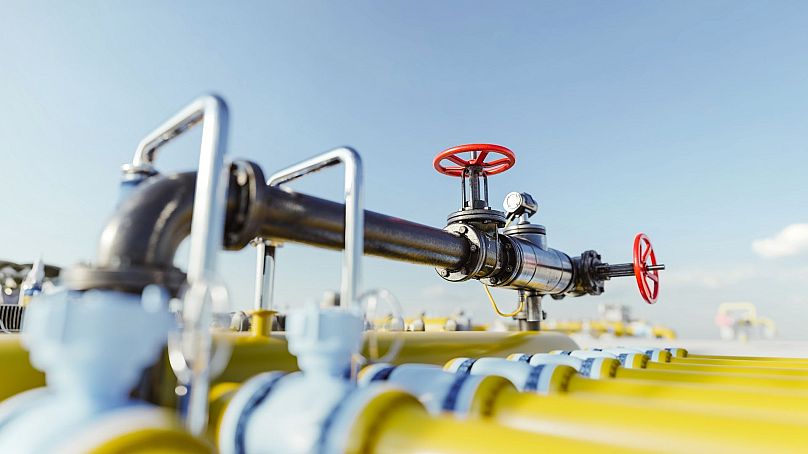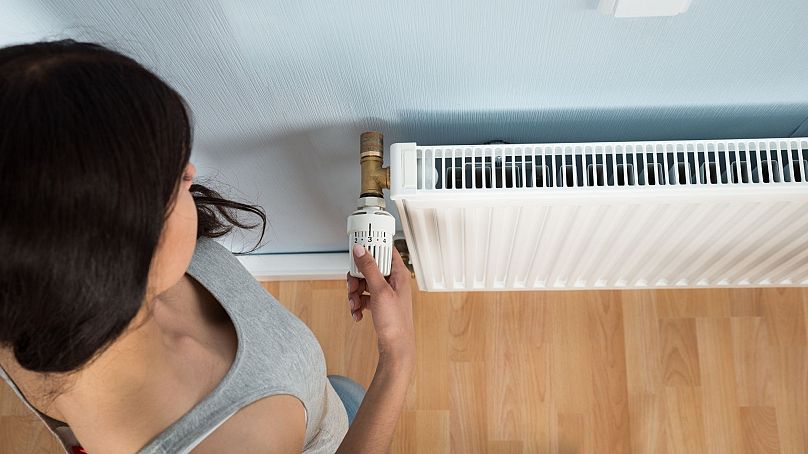But would a more dependable solution be to deploy heat pumps to provide an energy efficient alternative to heat homes?
Russia has threatened to close a major gas pipeline to Europe in retaliation for countries considering bans on Russian oil imports. This could drive up prices due to lack of supply internationally, which would affect even countries like the UK which do not use much Russian gas.
 ADVERTISEMENT
ADVERTISEMENT
 ADVERTISEMENT
ADVERTISEMENT
Right now, prices are already sky-high and affecting people’s bills. Ofgem, the UK energy regulator, will increase the price cap by £693 (€825) from April 2022, meaning gas bills will increase for 22 million customers. This will particularly affect those already in fuel poverty.
This is not the first time that Russia has used gas supply as a political weapon. In 2009, the country cut off supplies to Ukraine when supply contract negotiations collapsed. Ukraine retaliated by withholding Russian gas to Europe, which meant no gas at all for some households.
The crisis resulted in higher market trading prices for natural gas. It was thought that Russia depended so heavily on the revenues generated from European sales of its gas that it was unlikely to use it against Europe.
Yet, UK energy regulators later suggested that a disruption in gas from Russia would result in an overall reduction in the pool of gas available on the market, which could drive up gas prices.
Recently, the International Energy Agency suggested turning thermostats down to use less gas in the current crisis. It claimed lowering the heating by just 1°C would reduce gas demand by some 10 billion cubic metres a year – about 7 per cent of Europe’s annual imports from Russia.
So can energy consumers really make a difference?
Saving energy in a hurry
Consumers have shown that they’re able to rapidly reduce their energy consumption in response to a crisis: this is known as “saving energy in a hurry”.
These programmes are generally voluntary and promoted through public advertisement campaigns. Sometimes other measures are used too, such as rationing, technology replacement (installing low-energy bulbs) and financial measures (such as making energy use over a certain amount much more expensive to discourage consumption). These measures are often relatively cheap, do not harm the economy as much as blackouts, and they are effective.
In my research, I examined whether saving energy in a hurry could be used to reduce gas demand in a crisis similar to the one we face today. I surveyed households in London to ask them what energy saving actions they would be willing to take in a severe gas shortage. From their responses, I calculated that household energy use would fall by 23 per cent, based on both use of gas for household heating and cooking, and gas used in power stations to generate electricity.
The most effective actions were to turn off radiators in unused rooms, lower the thermostat by 1°C and draw curtains to keep the heat in. Reducing electricity use could reduce gas demand too: turning off lights was somewhat effective, whereas unplugging electronics such as phone chargers or turning off equipment such as TVs on standby at night had a negligible impact.
There are examples of saving energy in a hurry from the past. During the second world war, posters encouraged citizens in the US and the UK to save fuel such as petrol and coal.
More recent examples have been in response to electricity shortages. In 2008, when an avalanche damaged a major electrical power line in Juneau, Alaska, the town launched an campaign named “Juneau Unplugged” asking inhabitants to save power. Demand dropped by 40 per cent in a few weeks, largely within the first week. In the summer of 2011, Japanese consumers reduced power demand by 12 per cent to ease the electricity shortage triggered by the Fukushima disaster.
In Colombia in March 2016, a drought threatened the 70 per cent of the country’s power capacity which comes from hydroelectricity. A six-week media campaign, combined with high charges levied on those consuming more energy, resulted in a 4.5 per cent fall in energy consumption.
But would it work today?
So we’ve seen it has worked in the past, but it’s almost impossible to predict how much gas would be saved in the current situation. Behaviour is complex and difficult to predict exactly – the political context, the way the promotion campaign is led and other measures taken could affect how readily people comply.
Tactics such as energy saving in a hurry should only be taken in extreme circumstances, as they inconvenience consumers and require credible leadership by responsible authorities to succeed. Authorities would need to ensure that households do not put themselves at risk by lowering the thermostat too much, as indoor temperatures below 12°C are risky for vulnerable people. But it may still be an attractive alternative to the disruption caused by price hikes.
Long-term approaches for reducing energy consumption are needed. A more dependable solution would be to deploy heat pumps to provide an energy efficient alternative to heat homes, alongside greater energy efficiency measures like insulation and double glazing which could halve energy demand in UK homes over 20 years.
When heat pumps are powered by the growing proportion of renewable energy in the grid, this ultimately reduces dependence on gas as well as carbon emissions.
With 10 per cent of the contracts Gazprom (a Russian majority state-owned energy company) uses to supply Europe with gas expiring at the end of 2022, there’s an overwhelming incentive to eliminate dependence on Russian fuel.
_This article was originally published on The Conversation._












